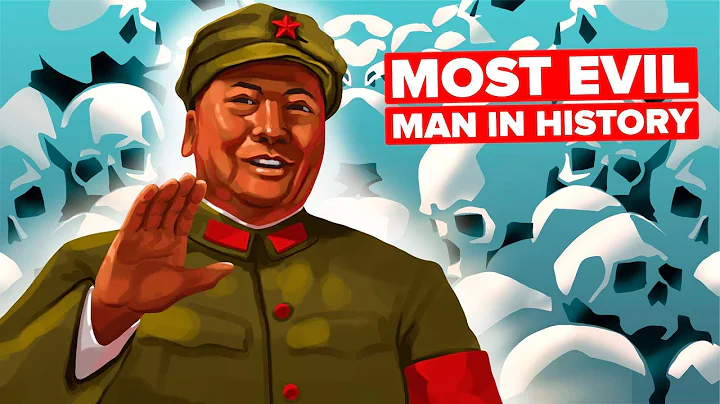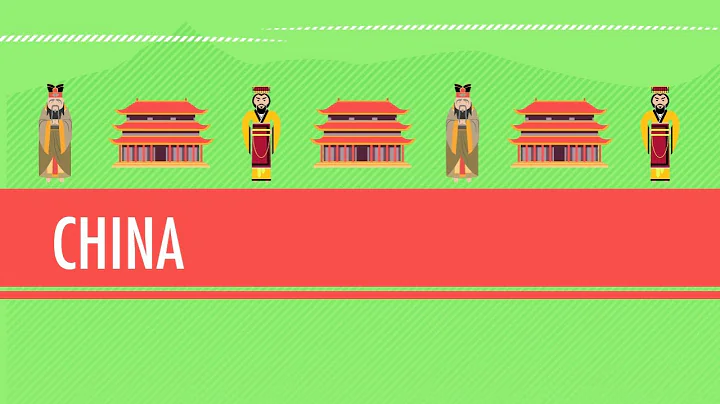On September 9, 1976, the great Chairman Mao passed away in Beijing at the age of 83.
, this great man who had worked day and night for the revitalization of the Chinese nation all his life, closed his eyes peacefully after going through vicissitudes of life. On that day, the whole country mourned , and people lamented the departure of the chairman.

Ordinary people will still explain their will and inheritance before they die. Therefore, people are very curious about how much property Chairman Mao, as the country's top leader, accumulated during his lifetime. How much inheritance will the chairman's children receive?
When it comes to the division of property and inheritance accumulated by Chairman Mao during his lifetime, there is a person who can be said to be very familiar, and that is the person who lived with Chairman Mao day and night - Wu Liandeng.
Wu Liandeng - "I am a housekeeper for Chairman Mao"
There are countless staff members who have served Chairman Mao, but Chairman Mao believes that they cannot only serve themselves, so they will regularly change personnel, usually every three years.

But there is one person who is special case , that is Wu Liandeng . Wu Liandeng was the chairman's life manager and served him for a total of 12 years. It can be said that Wu Liandeng spent Chairman Mao's last years with him. Moreover, Wu Liandeng was deeply loved and trusted by Chairman Mao, who once called him " you are the eternal light around me".
Wu Liandeng was born in a peasant family in Yancheng, Jiangsu Province in 1942. Because his family was poor, he did not go to school for a few years. html At the age of 216, he went to work as a waiter at the Yancheng Prefectural Committee Guest House.
At this time, Wu Liandeng may never have imagined that because of this job, he would accompany our great Chairman Mao for a full 12 years in the future.
As the saying goes " work what you do and love what you do ", although being a waiter is a relatively hard job, Wu Liandeng is very attentive. He is not afraid of hardship or tiredness. He has a good heart and a job in his eyes. He is deeply loved by his colleagues and leaders. favorite.
In 1959, Wu Liandeng was recommended by the Yancheng District Administration Office to work as a waiter in the Great Hall of the People. He was overjoyed and hurriedly packed his luggage and set off.

However, when he first arrived in Beijing, he was completely confused. Being a waiter in the Great Hall of the People was not that easy. Not only did he have to work diligently, but he also had to be familiar with the leaders' living habits and be able to tell through subtle expressions. In action, the needs of leaders can be seen.
Wu Xiandeng is quite smart and learns quickly. After a period of study and research, he became very comfortable at work.
In 1960, after many rounds of screening by the Central Security Bureau, Wu Xiandeng was successfully transferred to Zhongnanhai, where he began to directly serve the central leaders.
1961 was a year of special commemorative significance for Wu Liandeng.
This year, Wu Liandeng met Chairman Mao for the first time in the Yi Niantang. He was happy and excited, and carefully made tea for the Chairman, but he did not expect that he was too nervous. When he handed the tea to Chairman Mao, his hand With a shake, actually spilled out more than half of .

Wu Liandeng felt nervous, thinking that it was over now, and the chairman would definitely criticize him severely. But what he didn't expect was that Chairman Mao not only did not blame him, but also asked him his name and where his hometown was with a smile.
Wu Liandeng stumbled to answer. Chairman Mao suddenly smiled and said: " Oh, you are from Xiancheng! "
Wu Liandeng was stunned for a while and said quickly: " No, Chairman, I am A native of Yancheng, Jiangsu.”
” If salt is not salty, then isn’t that Salty City? " After the chairman finished speaking, he laughed, and the people around him also laughed. At this time, Wu Liandeng relaxed his mood and slowly became more natural.
During the National Day in 1964, Wu Liandeng was just 22 at this time. At the age of 18, when he was working quickly and energetically, Chairman Mao asked him to come to his house to "help". From then on, his days as the Chairman's butler began.

A few years ago, some things were not too easy for Wu Liandeng. Familiar with each other, Wu Liandeng's main job was to take care of sundries, clean up, organize warehouses and other trivial matters. As time went by, Wu Liandeng was basically "cleared" of many tasks.
In 1968, Wu Liandeng was officially appointed as the administrator. His main job was to manage the various financial expenditures of the Chairman's family, procurement, Chairman Mao's salary, recipes and other tasks were also under his control, becoming a veritable "general manager"
Despite his young age, Wu Liandeng started out. He was also very serious about things. He took the things assigned by Chairman Mao as missions and tried his best to complete them. Even the Chairman's family loved Wu Liandeng very much.
Although Wu Liandeng is older than Chairman Mao's daughter. They were still young, but the chairman had established " family rules ". According to this rule, Li Min and Li Na still called Wu Liandeng " uncle ". Therefore, to Chairman Mao, Wu Liandeng was more than just a person. A housekeeper is still his closest family member.

Chairman Mao’s bills and royalties
Wu Liandeng has worked beside Chairman Mao for more than ten years. He knows exactly how much Chairman Mao’s daily bills, salary income, and royalties are. . Wu Liandeng said that the chairman never touches money and leaves it to me for safekeeping. Although he is the top leader of the country, food, clothing, housing and transportation are not free. He needs to earn wages and spend money just like ordinary people.
After Wu Liandeng became Chairman Mao's housekeeper, the most troublesome thing for him was that the chairman's salary was simply not enough. He often couldn't make ends meet, and sometimes he had to draw from royalties.
He once said this when he recalled: " Many people don't believe that the life of a national president is still so embarrassing? Whenever I mention this, I can't help but want to shed tears. Chairman Mao's salary is actually only 404.8 yuan, Including party fees, furniture rental fees, children's school fees, and heating expenses, the monthly fixed expenses are about 200 yuan. ”

The monthly food expenses are also 100 yuan. When I go to Beijing for an inspection, please democrats. For meals, Chairman Mao paid for them out of his own pocket.
Cigarettes and tea are Chairman Mao's only requirements in life, because he often works all night and needs cigarettes and tea to refresh himself, so this expenditure is about 100 yuan.
Therefore, as early as the Yan'an period, Chairman Mao said: " I hate money, but I can't do anything about it! "
However, Wu Liandeng also expressed it this way:
"Chairman Mao His salary was originally 510 yuan, but Chairman Mao was determined to tide over the difficulties together with the people of the country, so he insisted on lowering his salary from the original 510 yuan to 404.8 yuan. "
Comparatively. Compared with Chairman Mao's salary, the Chairman's income from manuscript royalties is still considerable. According to statistics, Chairman Mao has nearly 1.24 million in royalties in his lifetime, but the Chairman has never spent a penny of this money.

Many people may have questions, will there be so much income just by publishing poetry? The fact is that this is not the case. At that time, our country had not yet perfected the relevant royalties system. Therefore, the poems published by Chairman Mao only received sporadic royalties, and most of them came from published books .
Among them, in the part of publishing books, the source is basically the income from foreign royalties. Abroad, more than a hundred countries have implemented relatively standard and complete royalties systems. For example, just one copy of "Selected Works of Mao Zedong " exceeded the printing volume of " Book of Songs ". The royalties are undoubtedly very high. Rich .
Where did Chairman Mao’s royalties go?
Chairman Mao was extremely frugal throughout his life and was reluctant to spend a penny, but he was very generous when it came to supporting others.
Chairman Mao’s teachers, relatives, friends, and revolutionary comrades have all received funding from the Chairman, especially Zhang Shizhao. Chairman Mao basically gave him about 2,000 yuan every year for 10 years.
Chairman's royalties will never be kept by himself, but given to the staff for safekeeping. Only when is in urgent need of , will he apply for them.

Treat children equally
Chairman's youngest daughter Li Na After the divorce, she took care of her children alone, with a meager income and a stretched life. Life was very difficult. In desperation, she could only ask her father Mao Zedong for help.
Chairman Mao has always been strict with his children. He also knew that children would not easily ask for money unless they had no other choice. Therefore, after much thought, the chairman still approved 8,000 yuan in cash from his manuscript fee to Li Na, and repeatedly told not to spend it randomly. kept 3,000 yuan to tide over the difficult period temporarily, and the remaining 5,000 Yuan should be deposited in the bank and cannot be used unless absolutely necessary, otherwise it will not be so easy next time.
Li Na kept in mind his father's words. Even with this 8,000 yuan, he still lived a simple and simple life. After the children got a little older, he used his own salary to support himself, and the remaining money was basically untouched.

Later, Chairman Mao considered the need to treat children equally, and could not just provide help to his daughter Li Ne just because she had difficulties in life.
In the 1980s, people from the General Office of the Central Committee of the Communist Party of China notified Chairman Mao’s daughter Li Min and talked to her about Chairman Mao’s legacy. Li Min responded like this: " If possible, I only need my father. The one prepared for me before. ”
And what is this legacy? That is the 8,000 yuan prepared before, plus a small color TV and a refrigerator. The same is true for the chairman's other children, because the chairman has always treated his children equally..
Some people may have questions at this time, where did the huge royalties go?

According to Wu Liandeng's account, Chairman Mao's royalties were all handed over to the state and were not left for any of his children.
Under the influence of Chairman Mao, Chairman Mao’s descendants inherited his style of conduct and worked hard for the happiness of the Chinese nation and people.
Throughout Chairman Mao’s life, hard work and thrift were the greatest role model for the people.
Today's life is hard-won. As future generations, we must always remember our ancestors and always cherish the memory of the great man .

















![[Documentary] The Daming Palace &Tang Dynasty (618 - 907 AD) 唐朝大明宫 - DayDayNews](https://i.ytimg.com/vi/SoSIpWbqS60/hqdefault.jpg?sqp=-oaymwEcCOADEI4CSFXyq4qpAw4IARUAAIhCGAFwAcABBg==&rs=AOn4CLDINzuwhoDWKXI3XRys4PUpsrGKJA)
![[Full Movie] Rise of Tang Dynasty 2 | Chinese Historical War Action film HD - DayDayNews](https://i.ytimg.com/vi/NK1SOefwYaA/hq720.jpg?sqp=-oaymwEcCNAFEJQDSFXyq4qpAw4IARUAAIhCGAFwAcABBg==&rs=AOn4CLDdnxT-kUF4ArXQ0Y8q0Mt7XbUPMg)


